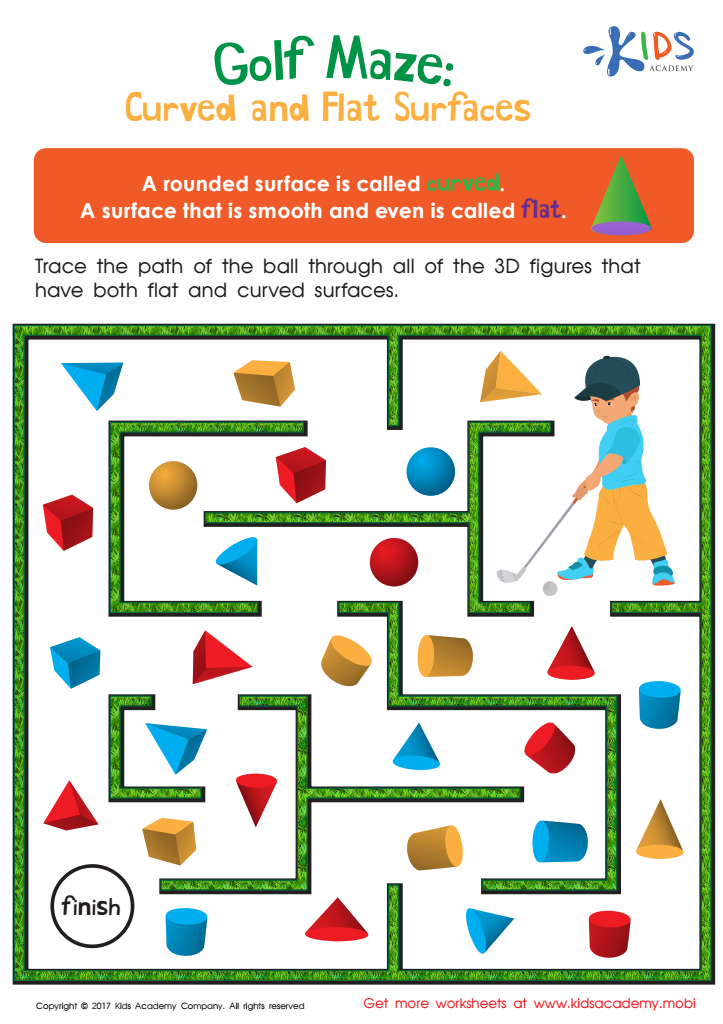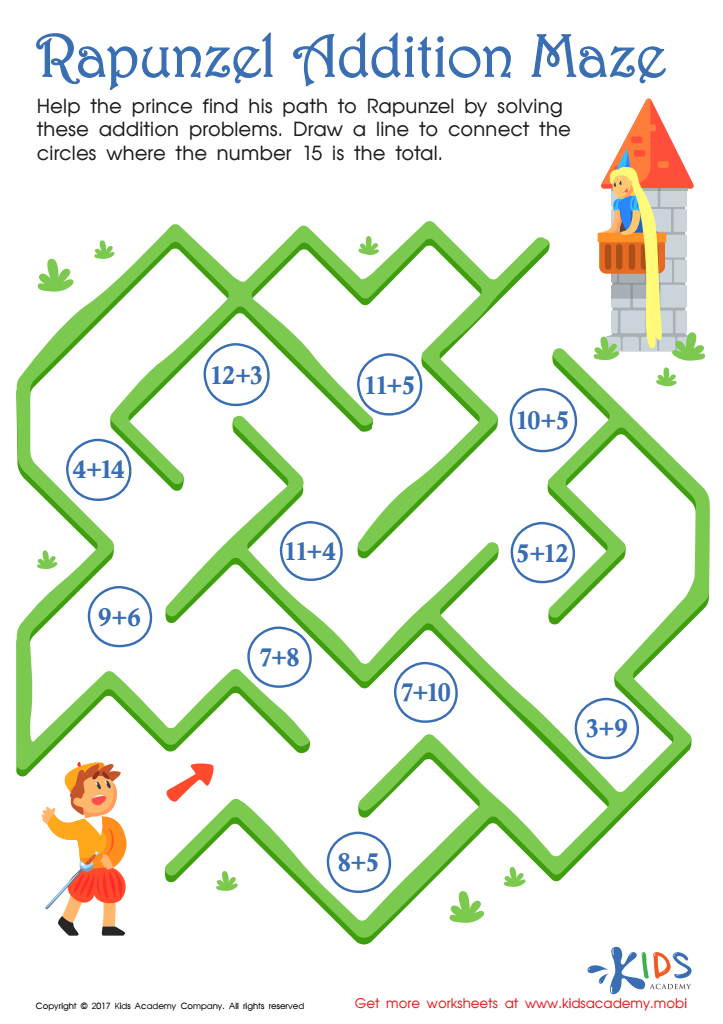Following directions Math Worksheets for Ages 6-7
3 filtered results
-
From - To
Empower young learners with our "Following Directions Math Worksheets for Ages 6-7." These engaging worksheets from Kids Academy are designed to help kids develop essential math and problem-solving skills while learning to follow instructions carefully. Through fun activities and colorful visuals, children will practice counting, recognizing shapes, number sequencing, and basic addition and subtraction. Perfect for classrooms and homeschool settings, these printable worksheets provide a hands-on approach to learning that keeps kids attentive and motivated. Foster confidence and independence in your child's mathematical journey with our expertly crafted resources today!


Golf Maze: Curved and Flat Surfaces Worksheet


Rapunzel Addition Maze Worksheet
Understanding the importance of following directions in math for children aged 6-7 is crucial for both teachers and parents as it plays a key role in the development of foundational skills. At ages 6-7, children are in their formative academic years and developing critical thinking skills. Math problems often involve multi-step directions, teaching kids to listen attentively, concentrate, and sequentially process information. This ability translates not only into better math skills but fosters overall improved performance in various other subjects.
Moreover, following directions in math cultivates essential life skills such as problem-solving, attention to detail, and patience. Completing a math task correctly often hinges on understanding each step clearly, thus instilling a sense of order and discipline in young learners. This habit extends outside the classroom, promoting independence and responsibility in everyday activities, such as following safety instructions or recipe steps.
For these key cognitive and practical life benefits, investing time and effort to encourage children to listen carefully and follow math instructions properly is indispensable. It enriches their learning experiences, smoothing their path toward more complex educational challenges and nurturing competent, self-reliant individuals.

 Assign to My Students
Assign to My Students

















